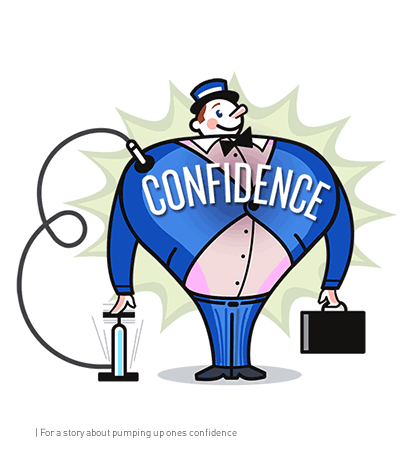Throughout my travels and chats, I find myself consistently surrounded by someone of this tremendously awesome UX community… I know, I’m lucky right?? Anywho, one of the things that I’ve noted is that many of us believe that we are just not good enough at what we do (including myself). In this post I want to highlight and debunk some thoughts around the lack of self confidence I’m noticing. 
First, a lot of times we just have a general lack of confidence in our work. We believe that we don’t really know UX Design as well as some of the big names, and because of that we are just not that good at our jobs. So, I started thinking… who is it that I think is good enough at UX Design, and what am I doing differently than them. Now, experience levels are always different and I understand that. But at the foundation of this profession, how is what I’m doing different and “worse” than the people that I look up to? I think that this is an important question to ask yourself. What really are you doing differently? Is there anything that sets you apart? Russ Unger debunks this thought in his presentation Opening the Kimono. Take a look at the slides, is there anything in there that looks completely foreign to you? For most people, I would guess not… I would guess that Russ and the guys used the same process and deliverables as all of you. Therefore we ARE doing the same things, and have no reason to think that we aren’t “good enough”. Our process and deliverables might need shaping, but they are the same.
Which brings me to point number 2 if the things in that presentation or others do look foreign to you, what are you doing to change that? If you really aren’t good enough, or think you aren’t good enough, what steps are you taking to be better? There is a ton of information and knowledge out there that can increase your talent, so if you aren’t going out and finding and absorbing it it means that you don’t really think you need to at this time OR that you don’t have the time because you are busy doing UX Design. I never again want to hear “I’m not good at this” (or say it) without hearing “I’m not good at this so I’m doing ABC to get better”. There is always an action to take if one truly believes that they need to take it. AND if you are already taking an action to be better than have faith in your work ethic and the output of your efforts!
So the formula to seeing and believing in your abilities as a designer is to 1. look at those around you that are doing what you think you should be doing and ask yourself where are the gaps between them and me and then 2. close those gaps by educating yourself, working harder, etc. By doing those two simple steps, you should be able to gain more self confidence in your abilities because either you are working towards closing the gaps, or you realize that the gaps weren’t ever really there. Interalize the good work that you are doing to be better, or the work that you do in your day to day work life. We are all contributing to the greater good of making the world a better place for our users… believe in your part!